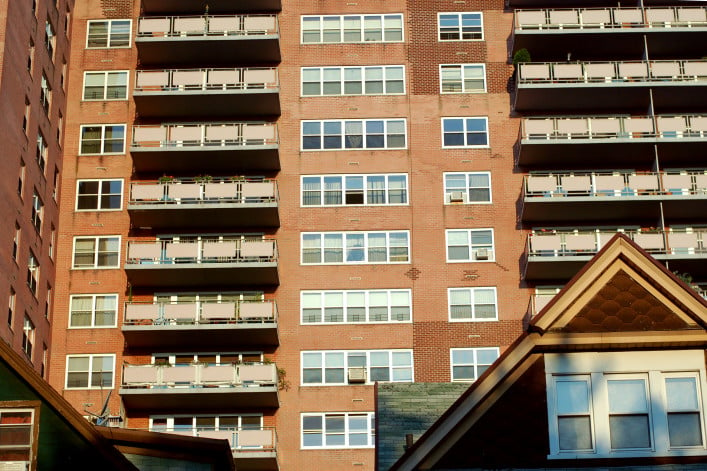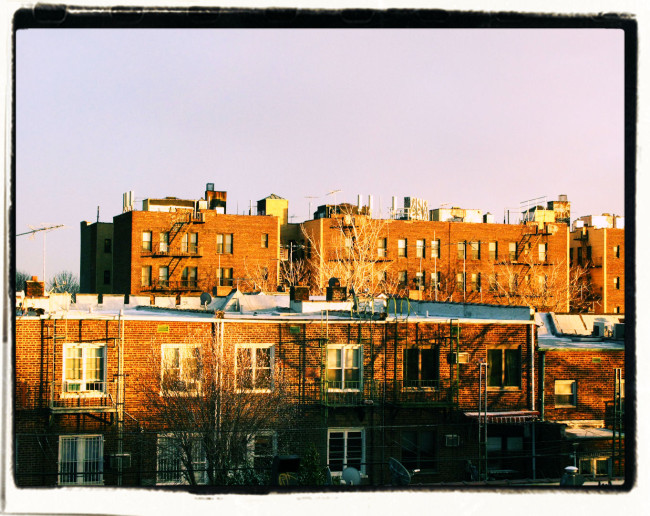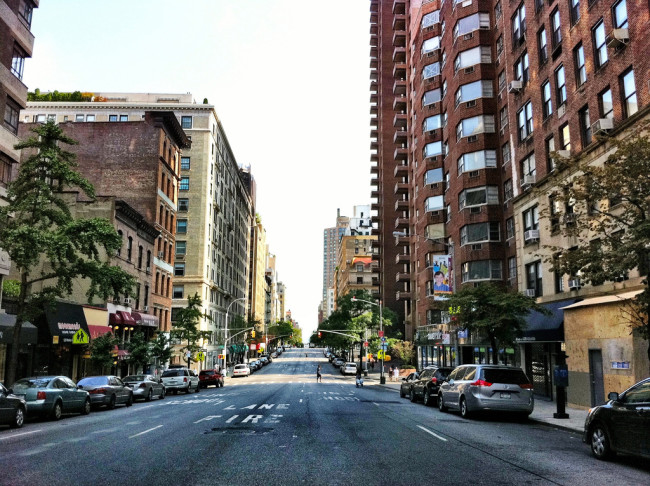Tenants' rights: The most important things NYC renters need to know
It's not easy to be a renter in NYC, where the market is fast-paced, the rents are steep, and the apartments are often tiny and aging. Many tenants may feel like they're subject to the whims of not only commerce but also their landlords, whose decisions about raising prices, terminating leases, and selling property can dramatically upend their lives. But in fact, New York City tenants benefit from a number of protections, and it pays tremendously to know your rights—and, when necessary, advocate for them. Read on to learn more about what you're entitled to as a tenant:
The right to fair housing
The NYC Human Rights Law forbids anyone renting a home from discriminating against tenants on the basis of age, race, religion, gender and gender identity, sexual orientation, income source (including rental assistance like Section 8) and more: Read this fair housing brochure for the full list of protected classes, and contact the NYC Commission on Human Rights if you suspect you've been discriminated against. Renters with disabilities are also legally entitled to accommodations that allow them easy access to their homes.
The right to a safe, well-maintained home
According to the Department of Housing Preservation and Development's ABCs of Housing, "Tenants should expect to live in safe, well maintained buildings that are free from vermin, leaks and hazardous conditions." Specifically, renters are legally entitled to the following:
Heating
You aren't necessarily guaranteed to be constantly cozy under city heating laws, but you can expect some measure of comfort. From October 1 to May 31, if temperatures drop below 55 degrees during the day, landlords are required to turn up building thermostats until it's at least 68 degrees inside. At night, when the thermometer drops below 40 degrees, they must make sure that it's at least 62 degrees inside. Tenants must also have access to cold and hot water, and the latter has to be at a temperature of at least 120 degrees when it comes out of the tap.
Read Brick Underground's Heating 101 guide for more information on what to do when your landlord won't crank up the thermostat—or if your apartment gets overly stifling, which is not unheard of if you have old steam radiators.
Pests
Part of landlords' responsibility to keep apartments safe and clean is pest control. If you have rodents, roaches, or other creepy crawlers in your home, your landlord must resolve the issue through whatever extermination means necessary, the New York City Rent Guidelines Board writes. This also applies to those most persistent of vermin, bedbugs: Landlords are not only required to get rid of them within 30 days (though high-heat washing and cleaning pretty much everything in your apartment is on you), they must also, per a 2010 law, let prospective new tenants know if there have been any bed bug infestations in the building within the past year. Learn more about your bed bug rights with this Brick guide.
Repairs
Part of keeping your apartment "habitable" means landlords must make repairs when something in your apartment malfunctions in such a way that affects your quality of life--think leaky roofs, broken heaters, backed-up plumbing, and other issues that impact health and well-being. If your landlord, super, or building management does not fix the issue in a timely manner, you should file a complaint with 311; HPD has a guide to its process of responding to complaints here. For more info on prodding your landlord into action, consult our strategic guide and tips.
Mold
Along with the classic features that New Yorkers seek in pre-war buildings occasionally comes a less pleasant one: Mold. When past water damage leads to fuzzy mold climbing your walls and ceilings, you're entitled to have it removed—especially since, as the Met Council on Housing explains, it can be dangerous to your health. Your landlord needs to not only remediate the problem but also address its source; if he or she fails to do so, contact 311. For more info, read our guide about how to identify mold, and remedy it.
Lead paint
This hazardous substance—which can lead to problems like kidney failure and developmental delays in children if consumed—was used in many NYC buildings prior to 1960, so the management of properties built before that time is required to test for and remove lead paint. Turn to NYC.gov for information on how to prevent lead poisoning and file a complaint if you suspect it's present in your home.
Smoke/carbon monoxide detectors
According to the ABCs of Housing, landlords are required to install at least one carbon monoxide and smoke detector in every apartment in their building, but tenants must make sure they're still operational and replace the batteries as needed.
Furthermore, know that if you complain about a landlord's failure to address any of these issues, you're legally protected against retaliation on his or her part.
Crime protection
According to the New York attorney general, landlords must take "minimal precautions" to keep tenants safe from intrusion and theft. For properties built after 1968, this includes installing doors that close and lock on their own, maintaining well-lit entrances, and, if requested by a majority of tenants, having a two-way intercom.
Window guards for children
Parents of children under 10 years old: Your landlord is required to install window guards in your rental. Note that you have to do your part, though, by letting your landlord know about your kids, and once the guards are installed, you can't remove or alter them.
The right to privacy
Leases typically mention that tenants have the right "to quiet enjoyment of your apartment." This doesn't mean the right to literal quiet (which few New Yorkers likely have.) Rather, tenants rights attorney Sam Himmelstein (fyi, a Brick sponsor) explains, the language means you occupy the unit to the exclusion of others, including your landlord. In other words, you're entitled to your privacy, and, as this New York Times column elaborates, no other party has claims to your lease.
The right to have roommates/subletters
According to the Met Council, NYC renters who live in a privately-owned building and are the only person on their lease have the right to share their home with a roommate--whether the person is a relative or not--and that person's dependent children. Note that this law doesn't apply to renters in subsidized housing, or to renters who are already on their lease with roommates.
You also have the right to sublet your apartment--if you're in a privately-owned building with four or more apartments, and are subletting for at least 30 days or longer--regardless of what your lease says. However, this law doesn't cover rent-controlled tenants, and renters in subsidized housing.
The right to protection from landlord harassment
Stories of unscrupulous landlords trying to force tenants out in the interest of renting or selling apartments for higher prices are sadly common in NYC (see, for example, these 5 Shady Landlord Harassment Tactics); Brick has covered tenant allegations of harassment against the likes of Steve Croman, Jared Kushner, and others. However, forcing tenants to leave is strictly illegal, and renters have the right to protection from landlords who apply pressure in the form of repeated buy-out offers, threats, eviction notices, lock-outs, creating unlivable conditions, and more; Nolo has a full list here. If you feel harassed by your landlord, you should enlist a tenant lawyer to help; if possible, consider forming a tenants association with your neighbors to find strength in numbers. Which brings us to...
The right to organize
As a renter, you're free to band together with your neighbors and form an association. Tenants often do this when facing challenging circumstances—take, for instance, the East Village renters who formed a coalition when they felt pressured by their landlord to move out—but the Met Council points out that such unions are useful in helping you advocate for yourself and deal with more minor issues, as well.
There's strength in numbers, and Sam Himmelstein adds that associations are also beneficial in splitting legal costs, should you and your neighbors need to hire a lawyer. (See that same column linked above for Himmelstein's tips on how to form a tenants association.)
The right to not be evicted without having your day in court
Your landlord can't simply evict you on their own, regardless of their reasoning. To begin eviction proceedings, your landlord is first required to have cause--whether it's nonpayment of rent, a violation of the terms of your lease, or the ending of a fixed-term or month-to-month lease--and provide written notice. If a tenant doesn't comply by moving out or remedying the issue, the landlord can then take them to court--but only once a landlord has won an eviction case can the tenant be legally removed from the apartment.
You also have the right to a lawyer, regardless of your ability to pay: Thanks to the recent passage of legislation, low-income tenants are now legally entitled to representation in housing court.
Additional protections
Note that tenants in rent-stabilized units and Mitchell-Lama apartments benefit from additional protections, as do residents of other forms of subsidized housing, including NYCHA-owned properties. Rent-stabilized tenants, for instance, are protected from huge rent hikes; recently, the Rent Guidelines Board voted that landlords of stabilized tenants who renew their leases for one year can only raise rent by 1.25 percent, or for a two-year renewal, by two percent. Tenants who qualify for a program like SCRIE (Senior Citizen Rent Increase Exemption), meanwhile, can have their rent frozen and not face future increases, depending on their age and income level.
You Might Also Like




























